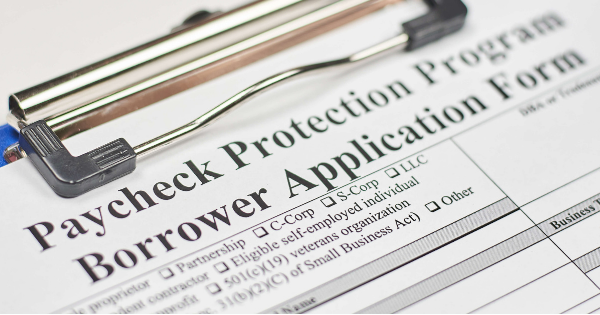
Majorities in both chambers of the Virginia General Assembly agree with Governor Ralph Northam and have voted to tax the federal Payroll Protection Plan grants that saved Virginia jobs in the pandemic. They only remain at odds over how much to tax.
The Virginia Senate has passed a bill 39-0 that allows employers, who used the money to maintain their workforce, to exempt the first $100,000 of their PPP grant from 2020. The rest is taxed. The bipartisan compromise allowed the bill to pass with the emergency clause it needs to go into effect immediately upon approval, in time for this tax filing season.
The average Virginia PPP grant was about $107,000, state officials reported. More than 20,000 employers would still see some taxes on their grants under the Senate bill.
The House of Delegates passed a bill 55-43 that allows only some employers – those not incorporated – to exempt the first $25,000 of their 2020 PPP grants. Because all Republicans opposed the bill, it did not have enough votes for the emergency clause. More than half of PPP recipients would be taxed on all or part of their PPP grants under the House bill.
Governor Ralph Northam had introduced legislation to tax the grants with no exemption. It was part of the annual bill that advances the date of the state’s conformity with federal tax law. Congress, which created PPP and disbursed $12.3 billion to Virginia employers, had decreed the money to be fully free from any federal taxes. Northam’s bill sought to de-conform from that, capturing state taxes.
Both the House and Senate bills do de-conform for federal law as Northam asked, but each created new deductions elsewhere in state law. Both deductions are only for 2020, leaving businesses to wonder about the rule for funds they receive under the PPP Round Two just getting underway. They better hold back 6% for state income tax just in case.
The Senate’s position for a larger exemption could still prevail as the legislative session enters its second half, where differences between the two bodies are resolved. In theory, the House could relent and simply adopt the Senate version in coming weeks. But Northam had assumed and spent all the revenue created by the tax when he drafted his budget, and House Finance Committee Chairwoman Vivian Watts, D-Fairfax, warned that the Senate position meant about $92 million less for state spending.
It was clear she was loathe to part with even the $38 million the state would “lose” by allowing the $25,000 deduction. Her bill and the Senate’s also allow a similar deduction for Virginia business which did not get PPP funding, but were given job-saving grants by a similar state program called Rebuild Virginia. Absent the agitation over PPP, those employers too would have been taxed in full.
Del. Kirk Cox, R-Colonial Heights, told colleagues that while he is a member of the Appropriations Committee, usually focused on spending, “I would rather give the benefit to the business than to the state.” He joined with the other Republicans in voting no.
The House deduction translates to a tax savings of $1,437.50 (5.75% of $25,000) per taxpayer. The Senate deduction would reduce an employer’s taxes $5,750 if the business is not incorporated, and $6,000 if it is. The funds involved are less important than the illustration of competing views over what is fair to tax, with the Democrats claiming any funds not taxed represent “tax relief,” a subsidy to business on the state’s part.
Watts said her goal was to help small business, but Republican Del. Joe McNamara, R-Roanoke, said it was really the “micro-micro” employers that received grants of $25,000 or less, those with perhaps one or two employees. He called it “wholly inadequate” and recommended the Senate approach as at least a reasonable compromise.
He also disagreed with the policy of refusing the deduction to an employer who had incorporated the business, rather than running it as a sole proprietor, partnership, or limited liability company. Small firms might incorporate and very large firms can be partnerships or other structures.
As she has before, Watts repeated the argument of Northam’s Secretary of Finance, Aubrey Layne, and disputed this is in any way a tax on the PPP grants. The PPP grants are not counted as income, she repeated, which is correct. That is only half of the equation and it is misleading to stop there.
What she is ignoring – and Delegate McNamara made this point in reply – is the state is also refusing to allow deduction of any payroll or other expenses used to qualify for the grant, which has “the same effective result as if the income had been taxed.” The larger the amount of PPP money received as a grant, the higher the resulting tax bill.
In the Senate, the Republican minority offered a floor amendment to provide full deductibility for the PPP-related business expenses, in effect ending any tax on the PPP grants. It failed on a 17-22 vote, with one Republican joining the Democrats. That was Sen. Emmett Hanger, R-Augusta, like Cox the ranking GOP member on that body’s budget committee.
The Senate’s position is a compromise, both financial and philosophical. It is a substantial improvement over the House position, has the emergency clause, and any message to legislators now should be that simple: Support the Senate version as is.
